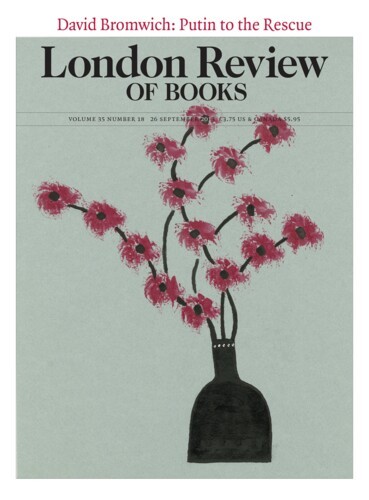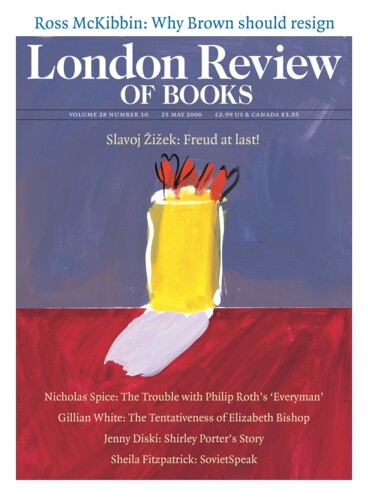Stand-Up Vampire: Louise Glück
Gillian White, 26 September 2013
Glück appears to have decided early on to devote herself to melancholy subjects. In the darkly funny ‘To Autumn’ from The House on Marshland (1975), her second collection, the poet sees azaleas and thinks, ‘I am no longer young. What/of it?’ and wishes for ‘the long/decaying days of autumn when I shall begin/the great poems of my middle period’. In her many poems about female adolescence and sexuality, often using mythical figures (she writes throughout her career from the perspectives of Persephone, Dido and Eve), fear of sex, the body and death incite a desire for control – of hunger, of susceptibility to romance, of poetic form. ‘Romance is what I most struggle to be free of,’ Glück has said, and almost all her work holds in tension reverence, grief, wry humour and disappointment: ‘It is true there is not enough beauty in the world,’ she writes in the multi-part poem ‘October’, from Averno (2006). ‘It is also true that I am not competent to restore it./Neither is there candour, and here I may be of some use.’


